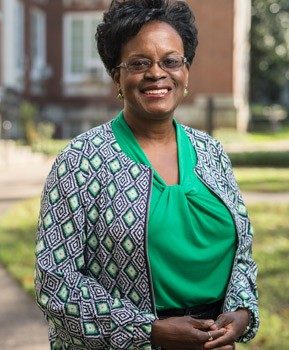Faculty Affiliate Sandra L. Barnes, the C.V. Starr Professor of Sociology at the Brown University, continues to lead critical conversations on religion, identity, and the lived experiences of Black communities. Her recent publications explore how faith, culture, and structural factors shape well-being and belonging among young Black people with diverse sexual identities.
Below are three of her recent works from earlier this year.
“Religion and Embodiment: How Young Black People With Diverse Sexual Identities Experience Christianity” । Journal for the Scientific Study of Religion
Sandra L Barnes
ABSTRACT: This qualitative study examines religious experiences linked to embodiment, Christianity, and the Black Church for a cadre of 76 young Black members of the LGBTQIA community ages 18–30 years old based on the questions: How have Black members of the LGBTQIA community experienced religion, in general, and Christianity as well as Black Church life, in particular? What have they learned that can be linked to embodiment? Can a Womanist lens help understand their religious lives? Given its emphasis on individual and collective transformation for historically marginalized groups, a Womanist theoretical framework undergirds this study. Four themes emerge via content analysis in which the bodies of Black sexual minorities are victimized, vilified, validated, and victorious relative to Christianity and body politics. Womanism was also found to be a useful model for interpreting and understanding their views about religion and/or spirituality.
Access the full article: https://onlinelibrary.wiley.com/doi/full/10.1111/jssr.12957
“Ten Strategies to Develop a Culturally Sensitive Prevention Program for Black Men Who Have Sex with Men: A Qualitative Analysis” । The Journal of Prevention and Health Promotion
Sandra L. Barnes, Leslie Collins, Dominique Lyew & Katherine Heffernan
ABSTRACT: Prevention programs are designed to expose participants to information, activities, and strategies to cultivate certain capacities and outcomes. Programs to prevent the transmission of HIV/AIDS among young Black men who have sex with men (YBMSM) are no different and are particularly important given the disproportionate rates at which the virus affects this population. However, studies show the limited number of culturally sensitive prevention programs specifically designed for YBMSM. The current study reflects a content analysis of 78 in-depth interviews with YBMSM ages 18 to 24 years old who participated in the prevention program, the IAM! Experience. The overwhelming majority of individuals describe the program favorably and provide ideas to make it even better. Ten suggestions emerge that illustrate the importance of cultural sensitivity that takes the form of: exciting, innovative, research-informed program content informed by racial, gender, sexuality, economic, and age-related issues; processes that build intra-group support; and, well-prepared, funded personnel to develop prevention programs that attract and retain YBMSM. The featured results document the importance of developing culturally sensitive preventions to combat HIV/AIDS among YBMSM as well as incorporating the suggestions and practices of participants during program development, implementation, and maintenance.
Access the full article: https://journals.sagepub.com/doi/10.1177/26320770241280712
“Stressors and Supports: Experiences of Young Black People with Diverse Sexual Identities in the United States” । Religions
Sandra L. Barnes
ABSTRACT: This qualitative study examines common stressors and support mechanisms in the lives of a group of 76 young Black members of the LGBTQIA community ages 18–30 years old based on questions to gauge common conflict or problems in their lives, personal support networks, and experiential reflections. Findings are based on the Structure versus Agency discourse and content analysis. In addition to individual agency, results document experiences navigating structural forces that are often intersectional in nature, the importance of family and friendship networks as a mitigating structural force against stressors, as well as the role of religion and/or spirituality in fostering agency.
Access the full article: https://www.mdpi.com/2077-1444/16/1/44

